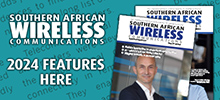01 May 2018
The US Government has banned companies and individuals in the country from exporting products to Chinese telecoms giant Zhongxing Telecommunications Equipment Corporation, better known as ZTE.
On 16 April 2018, the Department of Commerce’s Bureau of Industry and Security (BIS) imposed a denial of export privileges in response to what it claimed was ZTE’s “repeated false statements”.
The order prohibits any business or individual in the US to participate in any type of export transaction with the company.
ZTE reportedly spent more than USD2.3bn on imports from around 200 US companies in 2017, which includes vital components for its equipment.
According to the Department of Commerce, in March 2017 ZTE agreed to a combined civil and criminal penalty and forfeiture of USD1.19bn after “illegally shipping telecommunications equipment to Iran and North Korea, making false statements, and obstructing justice including through preventing disclosure to and affirmatively misleading the US Government”.
In addition to these monetary penalties, it said ZTE also agreed a seven-year suspended denial of export privileges, which could be activated if any aspect of the agreement was not met and/or if the company committed additional violations of the Export Administration Regulations (EAR).
The department said it now believes ZTE made false statements to BIS during settlement negotiations in 2016 and during the probationary period in 2017 related to senior employee disciplinary actions the company said it was taking.
It added that the company’s “false” statements only came to light after BIS requested information and documentation showing that employee discipline had occurred.
“These false statements covered up the fact that ZTE paid full bonuses to employees that had engaged in illegal conduct, and failed to issue letters of reprimand,” said US secretary of commerce Wilbur L. Ross, Jr.
“Instead of reprimanding ZTE staff and senior management, ZTE rewarded them. This egregious behaviour cannot be ignored.”
ZTE suspended operations following the ban. On 20 April, the company issued an online statement which said: “The Denial Order will not only severely impact the survival and development of ZTE, but will also cause damages to all partners of ZTE including a large number of US companies.”
The firm said that export control compliance is regarded as the “foundation” of its operation, adding that in 2017 alone it had invested more than USD50m in its export control compliance programme with more resources planned for 2018.
ZTE’s statement continued by saying that the BIS had “unfairly imposed the most severe penalty” and that it was disregarding a number of facts.
These included: ZTE self-identifying the issues in the correspondence and self-reporting them; the company having already taken measures against the employees who might have been responsible for the incident; the immediate implementation of corrective measures.
The firm said that it will not give up its efforts to resolve the issue through communication and, if necessary, through legal measures.
But even before the BIS had announced the denial of export privileges, president Donald Trump looked set to intervene in the matter.
In a Tweet on 13 May, he said: “President Xi of China, and I, are working together to give massive Chinese phone company, ZTE, a way to get back into business, fast. Too many jobs in China lost. Commerce Department has been instructed to get it done!”
A second Tweet the following day said: “ZTE, the large Chinese phone company, buys a big percentage of individual parts from U.S. companies. This is also reflective of the larger trade deal we are negotiating with China and my personal relationship with President Xi.”
Separately, and at the same time as the US announced its ban, the UK’s National Cyber Security Centre (NCSC) issued a warning about the potential use of ZTE equipment and services in the country’s telecoms infrastructure environment.
In mid-April, the centre’s technical director Dr. Ian Levy wrote to telecoms organisations with advice about using the company’s products.
“It is entirely appropriate and part of NCSC’s duty to highlight potential risks to the UK’s national security and provide advice based on our technical expertise,” said Levy. “NCSC assess that the national security risks arising from the use of ZTE equipment or services within the context of the existing UK telecommunications infrastructure cannot be mitigated.”







